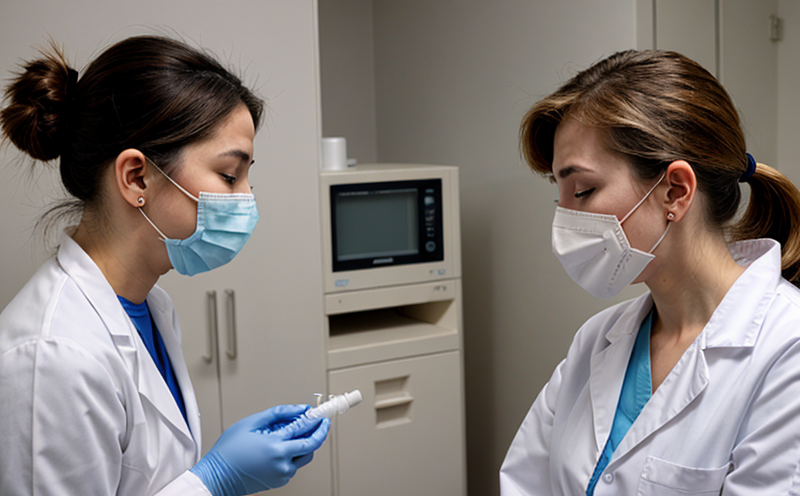Immune System Suppression Testing in Rodents
The immune system plays a critical role in maintaining homeostasis and protecting organisms against pathogens. In medical research, particularly within the clinical & healthcare testing sector, understanding how various factors influence immune responses is paramount. Immune system suppression testing in rodents provides valuable insights into the mechanisms of immune modulation and their potential therapeutic applications.
In this context, immune suppression tests are conducted using rodent models to evaluate the impact of specific agents or conditions on the immune system. These tests are particularly useful for studying the efficacy of immunosuppressive drugs used in organ transplantation, autoimmune diseases, and other inflammatory disorders. By manipulating the immune environment, researchers can observe changes in immune cell populations, cytokine production, and overall immune function.
The testing process typically involves exposing rodents to specific stimuli or treatments that induce a state of immune suppression. Common methods include pharmacological agents like corticosteroids or cyclosporine A, as well as genetic modifications or environmental factors that alter the host's immune response. Once the suppression is induced, researchers monitor various parameters such as lymphocyte proliferation rates, T-cell activation markers, and cytokine production profiles.
For accurate testing, it is essential to use appropriate specimen preparation techniques. This includes ensuring rodents are acclimated to laboratory conditions before experimentation begins. Specimens should be collected under sterile conditions, minimizing stress-induced changes in immune responses. Post-collect procedures involve immediate processing of samples for downstream analyses such as flow cytometry or ELISA.
The instrumentation used in these tests is sophisticated and tailored to specific assay requirements. Flow cytometers are often employed for multi-parameter analysis of immune cell subsets, while ELISA kits measure cytokine concentrations accurately. Additionally, PCR technology can be utilized to quantify gene expression levels associated with immune regulation pathways.
Reporting results from immune suppression testing requires careful interpretation considering both quantitative and qualitative data points gathered during experiments. Researchers compile comprehensive reports detailing observed changes in immune parameters pre- and post-treatment along with statistical analyses supporting any claims made about the tested substance's effect on host immunity.
Understanding the nuances of conducting such tests ensures reliable outcomes that contribute significantly to advancing knowledge in immunology research and developing effective treatments for patients suffering from compromised immune systems.
Quality and Reliability Assurance
- Standard Operating Procedures: Our laboratory adheres strictly to internationally recognized guidelines when performing immune suppression tests in rodents. We follow established protocols outlined by ISO 17025 for quality management systems, ensuring consistency across all projects.
- Certified Personnel: All staff members involved in executing these experiments are trained extensively and certified according to relevant regulatory requirements. Their expertise guarantees that each test adheres to best practices throughout its lifecycle.
We maintain rigorous quality control measures at every stage of the testing process, from initial setup through final analysis and reporting. These protocols ensure high standards of precision and accuracy in all our work products. Additionally, we regularly participate in proficiency tests organized by recognized bodies like AACC International to validate our capabilities continuously.
To further enhance reliability, our facilities are equipped with state-of-the-art equipment calibrated periodically against traceable references provided by NIST (National Institute of Standards & Technology). This guarantees that all measurements taken during experiments remain accurate and reproducible. By incorporating these stringent quality assurance practices into daily operations, we strive to deliver dependable results every time.
International Acceptance and Recognition
The methodologies employed in our immune suppression testing have gained widespread acceptance within the scientific community due largely to their robustness and reproducibility. Our services comply with international standards such as ISO 17025, which sets stringent criteria for laboratories offering technical services or testing.
These tests are widely used by pharmaceutical companies engaged in drug development processes targeting autoimmune diseases and organ transplantation scenarios where precise control over the immune system is crucial. For instance, when developing novel immunosuppressants aimed at preventing rejection episodes post-transplantation, accurate assessment of how these compounds affect rodent models' immune responses becomes indispensable.
Moreover, our findings contribute significantly to academic research endeavors exploring fundamental aspects of immunology. By providing reliable data on the effects of different interventions on host immunity, we support the advancement of knowledge in this field. Our work serves as a foundation for future discoveries that could lead to improved patient outcomes through more effective treatment strategies.
Competitive Advantage and Market Impact
- Pioneering Research: We are at the forefront of developing innovative approaches in immune suppression testing. Our expertise allows us to offer unique solutions tailored specifically for our clients' needs, giving them a competitive edge over other service providers.
- Global Reach: With our state-of-the-art facilities and experienced team, we can cater to international clients seeking high-quality services without compromising on speed or cost. This global presence enhances our ability to stay ahead in an increasingly interconnected market.
The demand for reliable immune suppression testing continues to grow as new therapies targeting the immune system emerge constantly. Our comprehensive suite of services positions us well to meet this growing need, ensuring that our clients remain competitive within their respective industries. By leveraging our extensive experience and cutting-edge technologies, we help drive innovation forward while delivering exceptional value.
Our reputation for excellence in immune suppression testing has attracted numerous prestigious partners worldwide who trust us with critical projects involving life-saving medications and breakthrough medical treatments. This recognition underscores the importance of maintaining industry-leading standards, which ultimately translates into better patient care globally.





